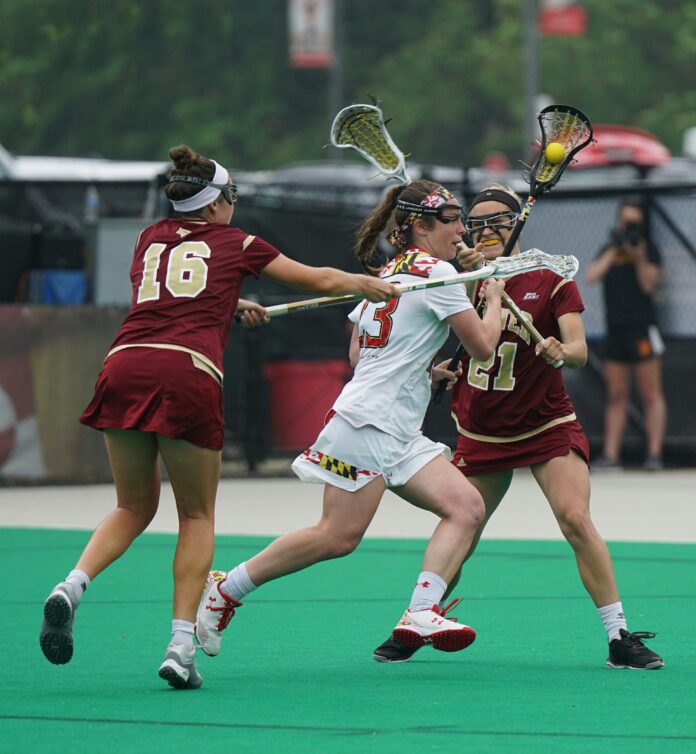Introduction
In the dynamic world of football, the role of a football agent is constantly evolving. To remain effective and competitive, football agents must commit to ongoing personal and professional development. This involves not only fulfilling FIFA’s requirements but also continuously enhancing one’s knowledge of the game, staying updated with industry trends, and cultivating a diverse set of skills. In this blog, we will explore the various aspects of personal and professional development essential for football agents to excel in their careers.
Professional Development: Meeting FIFA’s Requirements
One of the primary responsibilities of a football agent is to comply with all the regulations set by FIFA. This includes completing the annual Continuing Professional Development (CPD) mandated by FIFA. The CPD ensures that agents are up to date with the latest rules, regulations, and best practices within the industry. By fulfilling these requirements, agents demonstrate their commitment to maintaining high professional standards and protecting the interests of their clients. This commitment to ongoing education reflects an agent’s dedication to staying competent and knowledgeable, which is crucial in an industry as dynamic and competitive as football.
In addition to the CPD, agents must obtain the necessary qualifications to represent minors. This is a critical aspect of the profession, as representing young talents requires a thorough understanding of the specific regulations and ethical considerations involved. FIFA’s regulations in this area are designed to safeguard the well-being and future prospects of young players, and agents must be fully compliant to operate within these guidelines. Ensuring that they meet these qualifications not only protects the minors but also enhances the agent’s reputation and trustworthiness in the eyes of players, their families, and clubs. This specialised knowledge helps agents to navigate the complexities associated with youth representation and ensures they are providing the best possible guidance to young talents.
The relationship between FIFA and football agents is inherently turbulent, with regulations frequently changing. Agents must stay informed about these changes to ensure they operate within the legal framework. This involves regularly reviewing FIFA’s updates, attending industry seminars, and participating in legal workshops. Being proactive in this regard not only prevents potential legal issues but also positions agents as knowledgeable and trustworthy professionals. Keeping abreast of the latest developments in regulations allows agents to anticipate and adapt to changes, ensuring they can continue to serve their clients effectively and within the bounds of the law. This vigilance and commitment to regulatory compliance are essential for maintaining a successful career as a football agent.
Enhancing Football Knowledge and Market Insights
Beyond regulatory compliance, professional development for a football agent necessitates a deep and continuous learning about the game itself. This involves staying informed about tactical evolutions, coaching trends, and player development methodologies. Football is an ever-evolving sport with new strategies and techniques emerging regularly. Therefore, an agent must actively engage with football analysts, attend matches, and participate in courses in areas such as scouting to significantly enhance their understanding of the sport. Such engagement allows agents to gain insights into the latest developments and nuances of the game, enabling them to provide better advice to their clients. This continuous learning process ensures that agents can effectively support their clients’ career growth and make informed decisions that align with the latest trends in football.
In addition to understanding the game, agents must also be well-versed in the football landscape and transfer market, both of which are constantly shifting. Keeping abreast of market dynamics, including player valuations, club strategies, and transfer policies, is crucial for any agent. This comprehensive knowledge is essential for negotiating contracts, securing the best deals for clients, and identifying emerging opportunities. The ability to anticipate and respond to market trends can give agents a significant advantage in representing their clients effectively. Subscribing to industry reports, networking with club officials, and analysing market data are effective ways to stay informed. By remaining knowledgeable about the football landscape, agents can better position their clients in the market, ensuring they make strategic moves that enhance their careers.
Personal Development: Building a Well-Rounded Skill Set
Personal development for a football agent extends to acquiring skills directly related to football, such as scouting and player analysis. An agent must have a keen eye for talent, understanding what makes a player valuable, and the ability to identify potential talents early on. This requires not only a deep knowledge of football but also the ability to assess players’ strengths and weaknesses accurately. Attending scouting courses and participating in workshops are excellent ways for agents to hone these skills. These educational opportunities provide practical insights and techniques that can significantly improve an agent’s ability to evaluate talent. Moreover, leveraging technology and data analytics tools used in modern scouting can offer a competitive edge. These tools can provide detailed metrics and performance data, allowing agents to make more informed decisions and offer precise advice to their clients.
In the globalised world of football, communication is key, and proficiency in multiple languages can significantly enhance an agent’s ability to interact with clubs, players, and other stakeholders. English is essential due to its status as the global lingua franca, especially in international negotiations and communications. Spanish, in particular, is important given the prominence of Spanish-speaking countries in football, including major leagues in Spain and Latin America. Additionally, learning other languages such as French, German, or Italian can further broaden an agent’s reach and effectiveness. Each additional language opens new markets and facilitates smoother negotiations with a wider array of clubs and players. Language skills not only enhance communication but also demonstrate cultural respect and understanding, which can strengthen relationships and trust.
A solid understanding of contract law is indispensable for football agents. This knowledge ensures that agents can effectively negotiate, draft, and review contracts to protect their clients’ interests. The complexities of contract law require specialised knowledge to navigate potential pitfalls and ensure favourable terms for the players represented. Taking courses in contract law, attending legal seminars, and consulting with legal experts can equip agents with the necessary skills to handle complex contractual matters. This expertise allows agents to provide precise legal guidance, negotiate better terms, and safeguard their clients’ rights and interests in various contractual scenarios, from employment agreements to endorsement deals.
In today’s football industry, agents also play a crucial role in promoting their clients commercially. This requires a strong grasp of marketing and personal branding. Agents should consider taking courses in marketing, social media strategy, and brand management. These skills enable agents to create and maintain a positive public image for their clients, attract endorsements, and maximise their commercial potential. Effective marketing and branding strategies can significantly enhance a player’s marketability, leading to lucrative sponsorships and partnerships. By mastering these areas, agents can ensure their clients stand out in a crowded market, securing additional revenue streams and enhancing their overall career prospects.
Supporting clients on and off the field involves understanding and addressing their mental and emotional needs. Agents can benefit from knowledge in mindset coaching and psychology. This allows them to provide holistic support, helping players manage stress, stay motivated, and maintain a positive outlook. Courses in sports psychology, mentoring, and personal development can be valuable resources for agents in this regard. Understanding the psychological aspects of sports performance enables agents to offer more than just career advice; they can also contribute to their clients’ overall well-being and mental resilience. This holistic approach fosters a more supportive and effective client-agent relationship, ultimately enhancing the player’s performance and satisfaction.
Negotiation is at the heart of an agent’s role. Reading books on negotiation, attending workshops, and practising negotiation techniques can significantly enhance an agent’s ability to secure favourable terms for their clients. Effective negotiation skills are crucial for navigating contract discussions, transfers, and endorsements. They not only lead to better contracts but also foster stronger relationships with clubs and other stakeholders. Mastering negotiation techniques ensures that agents can advocate effectively for their clients’ interests, securing deals that reflect their true value and potential. By continually improving these skills, agents can enhance their professional reputation and effectiveness, ensuring their clients receive the best possible representation.
The Commitment to Continuous Learning
The bulk of personal development for football agents can be achieved through dedicated time and effort behind the scenes. Football agents must be proactive in seeking out opportunities for learning and growth. This proactive approach involves enrolling in relevant courses, attending industry conferences, reading books on various topics, and engaging with professional networks. By investing in these activities, agents can continuously improve their skills and knowledge, ensuring they remain effective and competitive in their field. Personal development is a continuous journey, requiring commitment and a willingness to embrace new learning opportunities as they arise.
The internet offers a plethora of resources for professional and personal development. Online courses and workshops provide flexible learning options for agents to enhance their skills. There are countless platforms that offer short and long courses in languages, marketing, contract law, and more, although it is important you find one with good reviews and reputation! These platforms allow agents to learn at their own pace and on their own schedule, making it easier to fit ongoing education into a busy professional life. By investing time in these resources, agents can stay ahead in the competitive landscape of football management. Online courses and workshops can cover a wide range of topics relevant to an agent’s career, providing both foundational knowledge and advanced strategies that can be applied directly to their work.
Reading remains one of the most effective ways to gain knowledge. Agents should build a comprehensive library of books on football tactics, psychology, negotiation, marketing, and legal matters. Engaging with thought-provoking literature broadens perspectives and provides valuable insights that can be applied in professional scenarios. Books offer in-depth analysis and diverse viewpoints that can deepen an agent’s understanding of various aspects of their role. Regular reading not only enhances knowledge but also stimulates critical thinking and problem-solving skills, which are essential for effective decision-making in the dynamic environment of football management.
Building a strong professional network is crucial for ongoing development. Agents should actively participate in industry events, join professional associations, and seek mentorship from experienced colleagues. Networking provides numerous opportunities for learning and growth, as it allows agents to exchange ideas, share experiences, and gain insights from others in the industry. Additionally, networking can open doors to collaborations and new business opportunities, helping agents expand their influence and effectiveness. Mentorship, in particular, offers the chance to receive guidance and advice from more experienced professionals, which can be invaluable for personal and professional growth. Engaging with a diverse network ensures that agents remain connected to the broader football community, staying informed about industry trends and developments.
The Agents Week
We also offer a weekly newsletter which is published every Friday. The Agents Week contains everything you need to know from the week in the world of football agents. We cover everything from updates on active transfer windows, general advice on being a football agent, various courses available and recommended, a relevant conference calendar and our own series on ‘how to do a deal anywhere in the world. You can sign up to receive The Agents Week directly into your inbox every Friday by following this link: https://mailchi.mp/erkutsogut/the-agents-week
Conclusion
In summary, the role of a football agent demands continuous personal and professional development. By meeting FIFA’s requirements, enhancing their understanding of the game, staying informed about market dynamics, and cultivating a diverse skill set, agents can provide exceptional service to their clients. Proactive learning through courses, reading, and networking, along with mastering skills like scouting, contract law, and marketing, ensures agents remain competitive and effective in the ever-evolving world of football. This commitment to growth ultimately leads to better representation and successful client outcomes.













